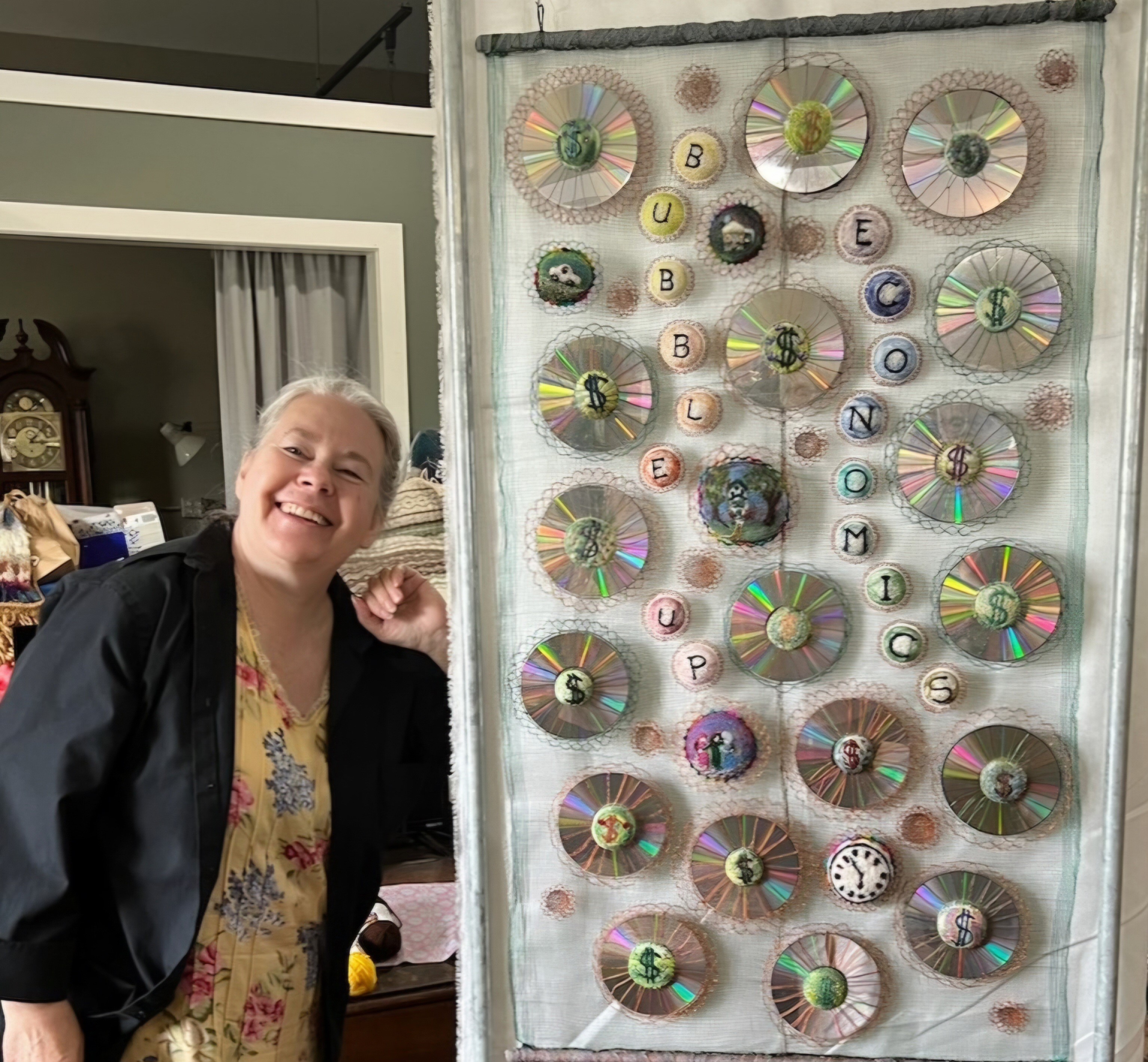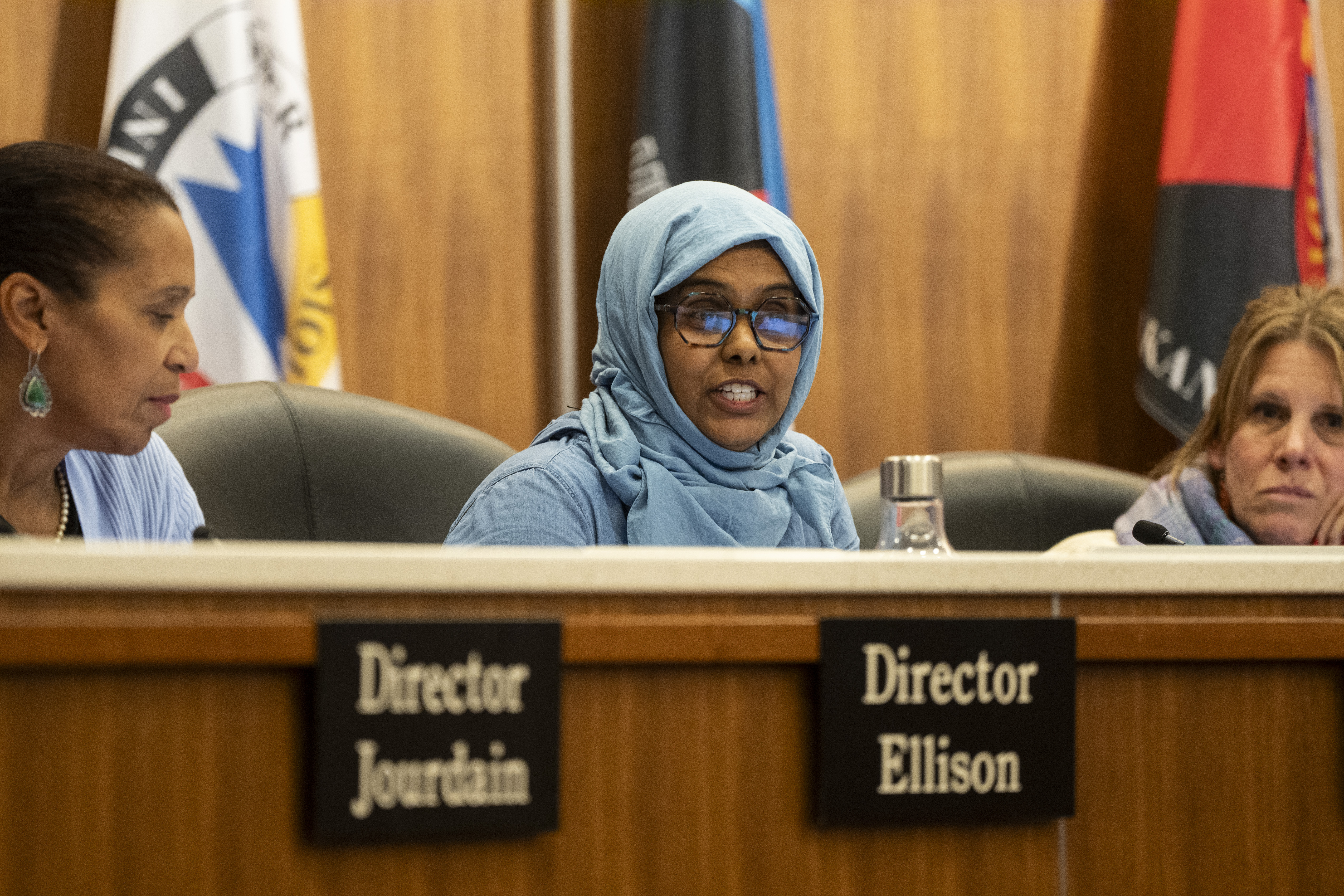Star Tribune
Duluth leaders look to make sleeping in homeless encampments a crime

DULUTH — City officials were called “authoritarian” and “ethically abhorrent” Monday night as the City Council heard from more than three dozen constituents on a proposal to make sleeping on city property a misdemeanor crime.
Mayor Roger Reinert and other city leaders announced 10 proposed ordinance changes last week addressing non-violent crimes they said drew the most complaints. Offenses include public graffiti and property damage, blocking sidewalks and streets without a permit, drinking alcohol in parks and soiling the city’s Skywalk.
The majority of nearly 200 emails sent to the Council and most of the packed chambers and overflow room appeared against the outdoor camping ordinance. It drew the bulk of speakers that spanned several hours.
Many experiencing homelessness, college students, religious leaders — including the bishop of the Diocese of Duluth — physicians and nonprofit directors called on the Council to reject the move to ban encampments.
“Places that enforce these kinds of ordinances are simply just shuffling people around,” earning “cheap political points,” said Dereck Williams, a Duluth man who said he chooses to be homeless and has traveled the country. “Most homeless people aren’t like me. They’re out there because of circumstances beyond their control.”
Several nonprofits and groups that work with the city’s homeless populations, including the Damiano Center, Safe Haven and the NAACP, said the city didn’t consult them before rolling out the proposed changes. Both in a letter to the city and Monday night, many called for more meetings, revisions and a tabled decision, asking that “life-sustaining” acts like sleeping not be criminalized. The Council will discuss and act on the measures July 29.
The U.S. Supreme Court ruled late last month that fining or jailing people for breaking anti-camping ordinances when there is no shelter available does not violate the Constitution. The decision gives local governments the license to cite and possibly arrest people in homeless encampments or other public spaces. While the city expects to educate and warn before turning to enforcement, a misdemeanor can mean a $1,000 fine or 90 days in jail.
Rochester approved a ban on homeless camps in February after area police said that more legal consequences were needed as encampments grew around the city.
Since it went into effect last spring, Rochester police haven’t cited or arrested anyone but have issued several warnings.
Nearly 600 people used a seasonal overnight warming shelter in Duluth during the winter of 2022-23. In the summer, nonprofits run a new operation called Safe Bay, where services and resources are offered along with safe overnight parking for sleep. About 200 people used it last summer. Plans authorized by the city 2 years ago for sanctioned outdoor seasonal villages haven’t come to fruition because of difficulty securing land and staff, but efforts to build low-cost, small footprint homes with built-in resources are underway by Stepping on Up, a coalition of organizations that work with the homeless population.
The group is a couple of years into its 5-year plan for permanent housing, and needs more time to raise money, said Deb Holman, a longtime outreach worker for Chum, an emergency shelter.
“We are closer than ever,” she said, before saying the names of three people who died of overdoses in tents. “We need safe housing for drug users and medical support.”
City officials have said they don’t see the move as criminalizing, and argue that misdemeanors offer alternatives to a fine, such as diversionary and restitution-type programs in lieu of jail time and a record. Those programs, including treatment and other assessments, can help channel those experiencing homelessness to resources, said Duluth police Chief Mike Ceynowa.
The Sixth Judicial Court in Duluth recently began a voluntary specialty court that hears misdemeanor charges in an effort to stabilize those committing lower-level crimes.
“This is not something we are going to jail our way out of,” Ceynowa said at a meeting last week, noting there are a few large encampments where garbage, needles and fire have been issues.
Some supporters of the city’s efforts came from downtown business owners and employees, including Patty McGaffey, who works in real estate. Problem behavior needs to be addressed, she wrote in a letter to the Council, or businesses will leave.
“We have been forced to spend thousands of dollars replacing broken windows and building entrance doors, removing graffiti, cleaning up human feces in building doorways and in the skywalk system,” she said.
Duluth resident Eric Lindell said at the Monday meeting that it’s up to state and federal governments and not the city to solve the homeless crisis.
“There is a silent majority out there that want these ordinances,” he said.
Brad Ray, a behavioral health and addiction researcher who consults with a local harm reduction group, said in an interview that criminalizing outdoor sleeping will eventually tax an overburdened criminal justice system. And it runs counter to other city efforts, like its 2-year-old crisis response team. For those who are arrested, it will likely lead to overdoses, he said, exacerbating the very problem the city is trying to solve.
“There is really no good win from this,” Ray said, “and it’s just totally not addressing the problem.”
Staff writer Trey Mewes contributed to this report.
Star Tribune
A guaranteed income program for Minnesota artists gets extended and expanded

St. Paul is among the cities that have tried sending money to very low-income residents, studying the results. When Springboard launched its project in 2021, it was one of the nation’s first guaranteed income programs aimed at artists.
“It’s not because we think artists are more deserving or more worthy than anyone else,” said Laura Zabel, Springboard’s executive director. Creative work is one form of labor that, like caregiving, “our economy doesn’t value” but that communities need — now more than ever, she said.
“I love thinking about guaranteed income as a way of honoring that we all have contributions to make to our community, and we need a little bit of time and space and breathing room to make those contributions,” Zabel said.
A similar experiment also started in 2021 in San Francisco, run by the Yerba Buena Center for the Arts, has ended. In 2022, the Creatives Rebuild New York program began providing some 2,400 artists in New York with $1,000 per month for 18 months. That same year, Ireland’s government began providing 2,000 artists about $350 a week, or about $18,200 a year, as part of a three-year pilot program.
Every 18 months, Springboard has extended its program’s funding. Now, it’s guaranteeing artists five years of income. The first 25 participants, who have received income since 2021, will see that money continue for two more years. Those who started receiving it 18 months ago, including 25 artists in Otter Tail County, will continue. And the 25 new recipients there will begin the program knowing they’ll get money for five years.
“So, from a research perspective, that’s very exciting — to be able to research and understand some of the difference between folks who know from the beginning the longer time horizon,” Zabel said, “and what that allows them to do in terms of planning and commitment to their community.”
Star Tribune
Duluth man pleads guilty to killing girlfriend who had a no-contact order against him

DULUTH — A Duluth man who said he doesn’t remember killing his girlfriend pleaded guilty to second-degree murder without intent Tuesday in St. Louis County court — a plea deal that could land him in prison longer than sentencing guidelines would dictate.
Dale John Howard, 25, told Judge Theresa Neo that he doesn’t remember it but believes he caused the death of his girlfriend, Allisa Marie Vollan, 27, on March 22. Vollan, described on a fundraising site as a “bright young lady” with “an abundance of friends,” had a no-contact order against Howard at the time of her death. Howard could be sentenced to 20 years in prison — more than seven years longer than Minnesota’s presumptive guideline for the murder. According to the county attorney’s office, the longer sentence is legal because of the active domestic abuse no-contact order against him.
Howard’s sentencing is scheduled for Oct. 14.
According to court documents, officers responded to a morning call at Howard’s Central Hillside apartment and found him beneath a blanket with Vollan, who was dead. He told officers that he had hung out with Vollan late the previous night, then left to meet friends at a bar, and Vollan went to sleep in a guest room. When he tried to move her into his bedroom the next morning, she wasn’t breathing. He called his father, who was at the apartment when Duluth police arrived.
Neighbors in the upper level of the duplex told officers that, in the time before Howard would have left for the bar, they heard a woman crying and an angry male voice. They heard muffled moaning, thuds and the sound of something being dragged. They recorded it.
A preliminary autopsy by the Midwest Medical Examiner’s Office found that Vollan had likely been smothered.
Earlier the same month, Howard had been arrested after neighbors saw him repeatedly slam Vollan’s head into a door. The no-contact was issued by a St. Louis County judge.
Star Tribune
Minneapolis School Board Member Fathia Feerayarre resigns

Minneapolis School Board Member Fathia Feerayarre, who represented District 3 in the city’s center since January 2023, has resigned effective immediately, the district announced Tuesday.
Her departure comes too late to add the seat to the November ballot, however, meaning her colleagues will have to appoint her successor in a process and under a timeline to be outlined next week.
Feerayarre ran unopposed in 2022 as part of a four-candidate slate endorsed by the Minneapolis DFL and the Minneapolis Federation of Teachers, and was set to serve until Jan. 4, 2027.
Board Chair Collin Beachy, who also was part of that four-person slate, said in a news release: “I thank Ms. Feerayarre for her service to the Minneapolis Public Schools community as a member of the school board. We all wish her the best in her future endeavors.”




